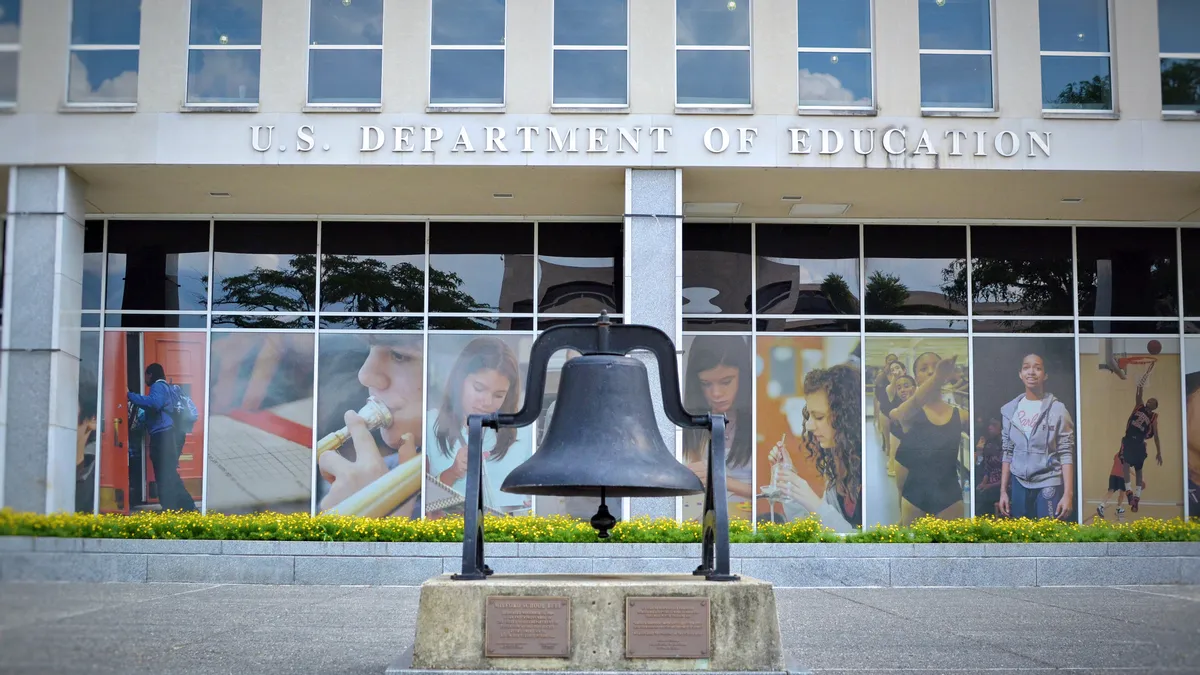Dive Brief:
- Federal lawmakers proposed a new bill this week meant to speed the conversion of for-profit colleges to nonprofit institutions when they are bought by new owners.
- The proposal — from Rep. Fred Keller, a Pennsylvania Republican — would require the U.S. Department of Education to greenlight such conversions after they close if they meet certain criteria. These include approval of a "materially complete" pretransaction review application by the department within 90 days before the deal closes. It would also mandate that colleges pay an administrative fee of up to $120,000 to the agency when applying for such conversions to cover the costs of those reviews.
- But one policy expert said the bill would do more harm than good. "The bill would prevent the department from doing the kinds of rigorous reviews that they have done under both Democratic and Republican administrations," said Robert Shireman, a senior fellow at The Century Foundation, a left-leaning think tank.
Dive Insight:
A spate of for-profit colleges switching to nonprofits under new owners has caught the attention of federal lawmakers and policy advocates, who worry that these transactions are rife with conflicts of interest and allow proprietary schools to dodge regulations affecting the sector.
A report last year from the U.S. Government Accountability Office heightened those concerns.
It looked into 59 nonprofit conversions between January 2011 and August 2020. In about one-third of those transactions, for-profit college officials were insiders to the conversion, meaning they had a relationship with the institution's buyer that could influence its financial decisions.
Since 2016, the Ed Department has "significantly increased the rigor, thoroughness, and scope" of reviews of such transactions, the agency said in a report to Congress last year. "We believe this results in a process that is more sophisticated, comprehensive, and better suited to identifying concerns that a surface-level review would not catch," officials wrote.
These reviews typically have three stages: a pre-acquisition review if the school requests one, a review within 60 days of the deal closing to ensure regulatory compliance, and a final review and decision.
When reviewing nonprofit conversions, the department focuses on whether a college's net earnings benefit a private shareholder or individual. The department holds off on giving final approval on nonprofit conversions until after the deal. That's because the actual transaction may differ from what was initially proposed during a pre-acquisition review, according to the agency's report to Congress.
The Ed Department also said in the report that "very few staff" are assigned to review such conversions on a full-time basis — prompting concern from Keller's office, which said this lack of manpower results in unacceptable delays.
"Too often, higher education institutions are getting wrapped up in months or even years of red tape," Keller said in a statement. "That's totally unacceptable, and these wait times are a disservice to students and the American taxpayer."
The administrative fee in his bill would address those concerns, Keller argued in the announcement.
The bill would also require any institution that recently converted to nonprofit status to be monitored for five years, in part to ensure any services or contracts with the former owners are bought at a fair market value. The institutions would have to pay the Ed Department and the IRS a fee to fund those monitoring costs.
However, Shireman said those provisions of the bill were red herrings, arguing the delays in nonprofit conversions have been necessary "because of serious questions about the appropriateness of nonprofit claims."
Shireman also contended that the bill's provisions would force conversion proposals through the department by establishing tight deadlines and giving colleges' owners fodder to take the agency to court.
These conversions have sparked legal action before. In 2018, Grand Canyon University split from its owner Grand Canyon Education, or GCE, and attempted to convert to a nonprofit institution. As part of the deal, the university contracted with GCE for education services in exchange for 60% of its tuition and fee revenue.
In 2019, the Ed Department denied the university's request to be treated as a nonprofit for the purposes of federal financial aid, contending that the services agreement was meant primarily to drive shareholder value. The university sued the department over the decision, and the matter is still pending in court.
An Ed Department spokesperson said the agency is looking closely at ways to streamline changes of ownership applications while protecting taxpayers, including through crafting new regulations.














